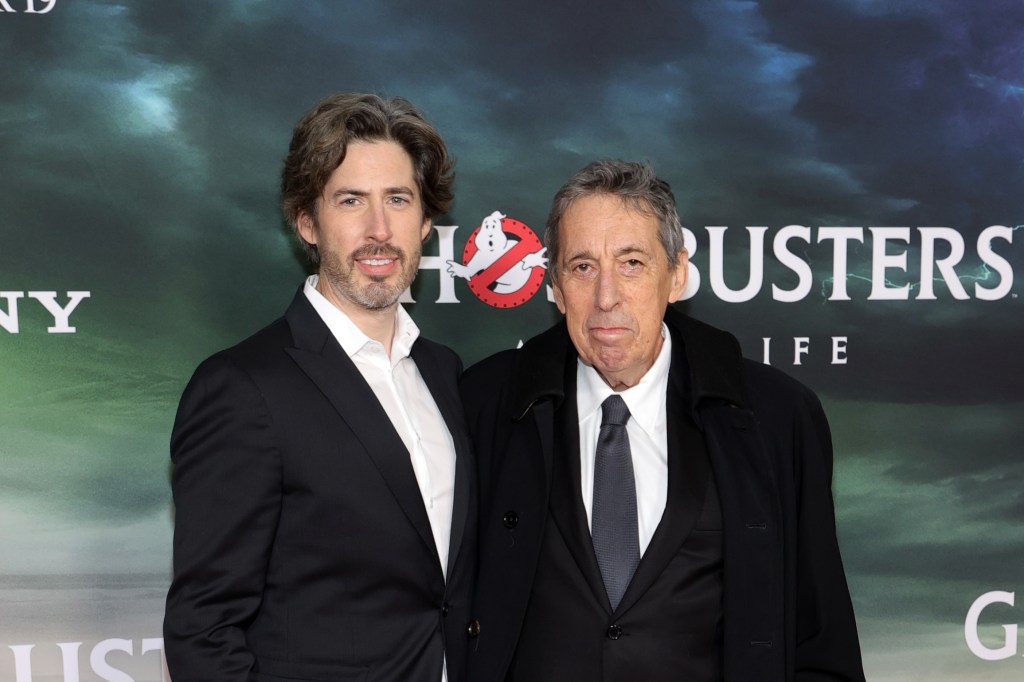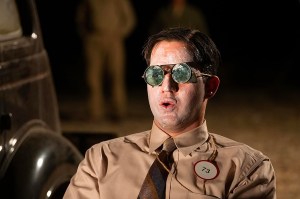The death of filmmaker Ivan Reitman was announced early on Valentine’s Day, which seems grimly appropriate. Although Reitman was not exclusively a director of romantic comedies, his films all had a cheerfully good-natured quality that generally made them significant box office successes.
From his debut proper, the Bill Murray comedy Meatballs, to his final film, the Kevin Costner sports drama Draft Day, his films tended to celebrate the warmer and happier aspects of life. You might even call them Capra-esque, although Frank Capra never made a picture in which a giant, phantasmal marshmallow terrifies New York City. One-nil, Reitman.
He is, of course, best known and loved for his 1984 supernatural comedy Ghostbusters, featuring said phantasmal marshmallow, and which has continued to maintain an enormous influence on popular culture ever since. Not for nothing was his son Jason’s 2021 sequel Ghostbusters: Afterlife both acclaimed and criticized for the painstaking attention that it took to maintain the legacy of Reitman’s original film (and, to a lesser extent, its 1989 sequel).
His high-concept Arnold Schwarzenegger pictures (Arnie has Danny DeVito as his long-lost twin brother! Arnie is a tough cop working as a kindergarten teacher! Arnie is pregnant!) skillfully deconstructed their star’s monosyllabic, monolithic persona, with big laughs wrung from their incongruous pairings of actor and situation.
As with most major Hollywood directors, there were many weaker films too. Few people would remember the likes of the Harrison Ford/Anne Heche comic adventure Six Days, Seven Nights, the silly Uma Thurman farce My Super Ex-Girlfriend or the would-be transgressive Natalie Portman vehicle No Strings Attached. The best that could be said of these is that they are at least amiable and watchable failures.
It is telling that Reitman’s work as a producer encompassed broader, darker territory, including his son’s George Clooney drama Up In The Air, for which Reitman was nominated for an Oscar for Best Film; perhaps he was, underneath the bonhomie and charm, a frustrated dramatic director, as well as everything else.
And his best film, 1993’s Dave, adroitly moved into richer dramatic territory. Working with an excellent script by Big’s Gary Ross, which was rightly Oscar-nominated, Reitman took the potentially hoary premise of an ailing president being replaced by a lookalike and mined it both for genuinely amusing political satire and — that description that keeps coming up — Capra-esque charm, not least because of Kevin Kline’s magnificent dual work in the lead. Today, its idealistic description of early-Clinton politics might seem hopelessly anachronistic, but Reitman and his cast manage to make it sing quite beautifully.
Ironically enough, Reitman was by no means the dyed-in-the-wool cozy liberal that he might have been assumed to be. He described his own politics as “conservative-slash-libertarian,” and the uproariously Bacchic instincts of some of his films, such as Animal House and Stripes, are those of an anarchist who enjoyed thumbing his nose at convention.
But he learned the hard way. He was the son of Hungarian Jews who survived World War Two; he arrived in Canada when he was four. Reitman began his career producing the early films of his adopted countryman David Cronenberg. The two men remained close — Cronenberg even changed the title of his film Dead Ringers from Twins, as his friend had requested the chance to use it himself — and it is amusing to wonder how Cronenberg’s more perverse sensibilities may have influenced Reitman, and vice versa.
Ivan Reitman’s death is a significant rather than seismic loss to cinema. Ghostbusters and Dave aside, there are generally good rather than great films in his oeuvre, and his son Jason may well be a more purely talented director. But the sense of good cheer and joy that both man and pictures brought was a genuine one, and it will be hard for many of his peers to capture such an apparently effortless sense of fun in their work. As his forebears might say, “may his memory be a blessing.” Or, to acknowledge his best-known film’s iconic theme tune, “I ain’t afraid of no ghost.”


















